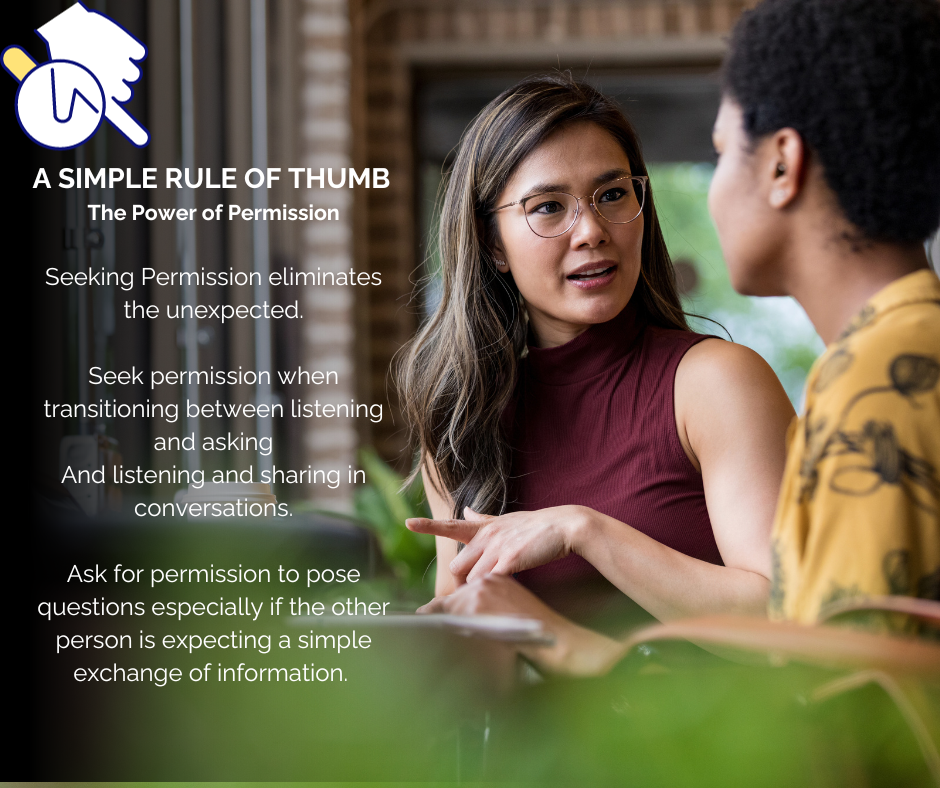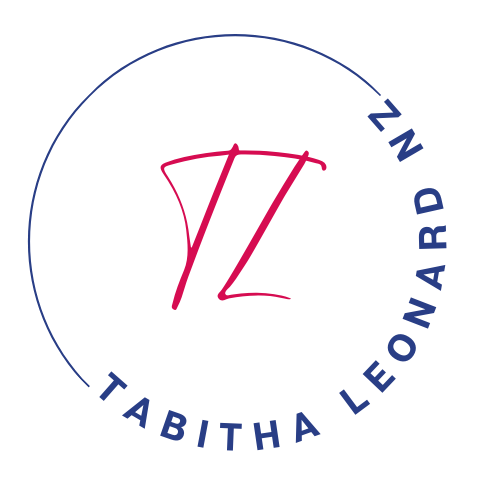
Monday Mindset
Newsletter

Unlocking Impactful Conversations
In this log explores the staggering statistic that 9 out of 10 conversations fall short in effective communication. Drawing from Stanford University's research, we delve into the challenges of aligning conversational intentions with their actual impacts. Reflecting on personal experiences and client successes, we highlight the pivotal role of high-performing conversations in organizational success. We emphasize the importance of cultivating self-awareness, empathy, and adaptive communication skills to bridge the gap between intention and impact. By focusing on key areas such as active listening, empathy, and influencing others, individuals can drive meaningful change and elevate performance through impactful communication.

The Power of Desire
Discovering the inefficacy of traditional goal-setting, the blog explores a new paradigm: prioritizing desires over goals. Drawing insights from James Clear's "Atomic Habits" and Brendon Burchard's goal architecture, it advocates starting with desires, aligning routines, then setting goals. Highlighting the importance of systems, it emphasizes continuous improvement and the role of routines in achieving fulfillment. By focusing on self, skills, social, and service, individuals can craft a purpose-driven life. The blog encourages readers to shift their mindset from task-centric to desire-centric, leading to a more fulfilling and intentional existence.

Clarity Conundrum
In "The Clarity Conundrum," we delve into the challenges leaders face due to a lack of clarity and offer transformative solutions. Recognizing the impact of clarity on decision-making and stress levels, we explore how clarity shapes our interactions and intentions. Through four key areas – self, skills, social interactions, and service – leaders can gain clarity and direction. By embracing daily practices that prioritize these areas, leaders can unlock numerous benefits, including reduced stress, continuous growth, stronger relationships, and impactful leadership. The blog provides practical tools and insights to help readers set intentions, make effective decisions, and achieve greater success in their personal and professional lives.

The Big Three
In this blog post, we explore the four common behaviours people exhibit in challenging conversations: avoidance, reconciliation, rectification, and responding. While running, reconciling, and rectifiying often lead to unsatisfactory outcomes, responding with empathy and connection fosters meaningful change and enhances influence. By mastering the art of responding, individuals can create spaces for positive transformation and growth in their interactions.

Unveiling the Secrets to Tackling Toxic Team Dynamics
In this blog, we explore the detrimental effects of avoiding crucial conversations in the workplace, using a real-life scenario to illustrate how toxic team dynamics can escalate when left unaddressed. By shedding light on the consequences of silence and providing insights into effective communication strategies, the blog aims to empower readers to confront difficult situations head-on and cultivate healthier, more productive work environments.

How To De-escalate Defensive Dialogue With Ease
In today's fast-paced and interconnected world, the prevalence of dissatisfaction and tension among clients, boards, and staff has reached unprecedented levels, demanding urgent attention. As we grapple with heightened emotions and the challenges posed by social media, effective communication has never been more crucial.
Despite recognizing its significance, many leaders continue to struggle, yearning for consistent and predictable outcomes in their interactions. Drawing from extensive research and experience with over 1,000 clients, I'm thrilled to introduce the web class "How To De-Escalate Defensive Dialogue With Ease" - a transformative opportunity to tackle tough dialogues head-on, navigate challenging dynamics, and lead discussions with clarity and purpose.
Join me for an enlightening session where we'll equip you with game-changing strategies to de-escalate defensive dialogue and enhance your communication skills. Don't miss this chance to reclaim control over your conversations and eliminate stress. Invest just 60 minutes of your time and embark on a journey towards transformative growth. I can't wait to see you there!

The High Cost of Avoiding Difficult Conversations
Imagine a scenario where a manager, Sarah, repeatedly postpones a performance review discussion with an employee, causing frustration and anxiety for the employee.
In this post, we discuss the mistake of avoiding difficult conversations altogether. Procrastinating or postponing important discussions can lead to pent-up frustration, resentment, and damaged relationships.

The Art of Openness
Envision a scenario where a project at work fails because team members assumed they were all on the same page, only to discover later that each person had different expectations.
This blog post explores the mistake of assuming instead of clarifying. Making assumptions about what others mean or intend can lead to misunderstandings and conflicts.

The Communication Breakdown
Envision a scenario where a project at work fails because team members assumed they were all on the same page, only to discover later that each person had different expectations.
This blog post explores the mistake of assuming instead of clarifying. Making assumptions about what others mean or intend can lead to misunderstandings and conflicts.

The Art of Patience:
Picture a family dinner where two siblings, Lisa and Mike, engage in a heated argument, constantly interrupting each other, making it impossible to resolve their differences.
In this post, we delve into the mistake of interrupting or talking over others and how it can escalate conflicts. Interruptions disrupt the flow of communication and can lead to misunderstandings.

The Power of Active Listening in Effective Communication
Imagine a team meeting where Sarah is passionately sharing her innovative ideas, but her colleague John keeps interrupting with his own thoughts, not fully acknowledging her.
In this blog post, we explore the mistake of not actively listening and how it can hinder effective communication. Active listening involves giving your full attention to the speaker, understanding their perspective, and showing empathy.

Building Stronger Connections in the New Year
Building Stronger Connections in the New Year"
As we step into a new year, it's the perfect time to reflect on our relationships. Whether it's with coworkers, friends, or loved ones, nurturing these connections is essential. In my own journey, I've discovered three valuable tips: Embrace curiosity, ask for what you need, and be open to rethinking your beliefs. These gems have transformed my interactions, and I'm excited to share them with you. So, let's kickstart the year with stronger, more meaningful relationships that enrich our lives and those around us.

Redefining Conversations by Ditching "But" for "And"
Acknowledgement holds immense power in conversation, validating and connecting individuals. Yet, the seemingly innocuous "but" often derails its impact. Picture this: "I value your perspective, but..." The shift from acknowledgement to contradiction disconnects. Imagine if we rewired this pattern. "I value your perspective, and let's explore it further." This simple linguistic switch preserves acknowledgement while inviting collaboration. Consider the influence of this change in your conversations—how swapping "but" for "and" might foster unity, understanding, and a more inclusive exchange. This small shift in language can revolutionize the way we connect.

The Power of Acknowledgement
"Unlocking the potential of our emotions begins with the power of acknowledgement. Recent neuroscience unveils the significance of labelling emotions: reducing the impact of negatives and amplifying the positives. Language shapes our emotional landscape.
By naming our feelings, we navigate turbulent waters with greater clarity. In moments of stress, this practice becomes our beacon, steering us toward control and productivity.
Take a moment amidst the chaos, label your emotions, and witness the transformative shift within—a small step with an immense impact on how we navigate life's intricacies."

The Power of Permission in Conversations
Engaging in conversations with respect begins by seeking permission. It's the key to honoring autonomy.
By inviting participation from the start and asking before contributing, we ensure everyone feels valued. This small act maintains the conversation's flow, preventing unexpected interruptions. Reflect on past interactions—how seeking permission could have enriched the exchange.
Integrate this practice consciously; pause, ask, and respect the conversational dance. Embrace this simple yet profound shift; it holds the power to transform dialogues into respectful, inclusive exchanges where every voice finds space and significance.

Navigating Tricky Conversations as Middle Leaders
Navigating tricky conversations is an art for middle leaders. Picture this: a team member's oversharing jeopardizes an upcoming assessment's fairness.
The key? Define what you truly want – not just immediate correction but emotional well-being and relationship preservation. Recognize the three conversations intertwining: "what happened," emotional nuances, and identity perceptions. Success lies in considering triggers, managing expectations, choosing the right approach, and maintaining clarity. For middle leaders, being clear is an act of kindness. Mastering these conversations ensures growth, collaboration, and a positive educational environment. Effective communication is the compass through this complex terrain.

Navigating the 5 Roadblocks to Meaningful Conversations
Communication is the lifeblood of our relationships, personal and professional alike. It's how we connect, express ourselves, and navigate the challenges life throws our way. But what happens when our conversations hit a roadblock? You know the feeling - when a discussion that starts with good intentions suddenly becomes a tangled mess of misunderstandings, frustration, and tension.
In this blog post, we're going to uncover the five critical elements that can halt conversations in their tracks: status, certainty, autonomy, relatedness, and fairness. These are the hidden culprits that often lead to the breakdown of effective communication and the escalation of conflicts. Let's take a closer look at these roadblocks and discover how they can affect our interactions.

Navigating Challenging Conversations
We delve into the common challenge of effectively communicating with resistant team members in educational institutions. By emphasizing the importance of clarifying your approach and introducing the SCARF model, this article offers valuable insights into overcoming communication barriers. It highlights how understanding factors like Status, Certainty, Autonomy, Relatedness, and Fairness can significantly enhance communication, promoting collaboration and trust within educational leadership. The article also underscores the concept of "when you name it, you tame it," emphasizing the power of addressing these factors in conversations to foster open and constructive dialogue. Middle leaders will find practical tools and strategies to navigate challenging discussions, build stronger relationships, and promote growth and innovation in their educational institutions.

Successful Workplace Conversations
Do you need help with staff who keep coming to you for the answers?
Do you wonder what you can do to support your staff to show more initiative?
Isn't it draining to be fighting fires and solving problems all day long?
Here is one possible cause of that very symptom that frustrates many leaders, as told through the eyes of Jane, a Middle Leader sharing her experience with her line manager…. read on

How to know you are having the wrong conversation
Do you find yourself having the same conversation again and again?
In my work with Middle and Senior leaders in the BETTER Conversations Program, I find this frustration shared across all groups.
Repetitive and reactive conversations are a symptom of conversations based on these three habits.
Our stories are centred around how we feel, and we present those feelings as facts.
We play the blame game or attribute our feelings to others. "you made me so mad…"
We use labels to shortcut the story. "she doesn't like me" or "He always does that".
We all do it; it's the social norm of linguistic patterns we grew up with.

